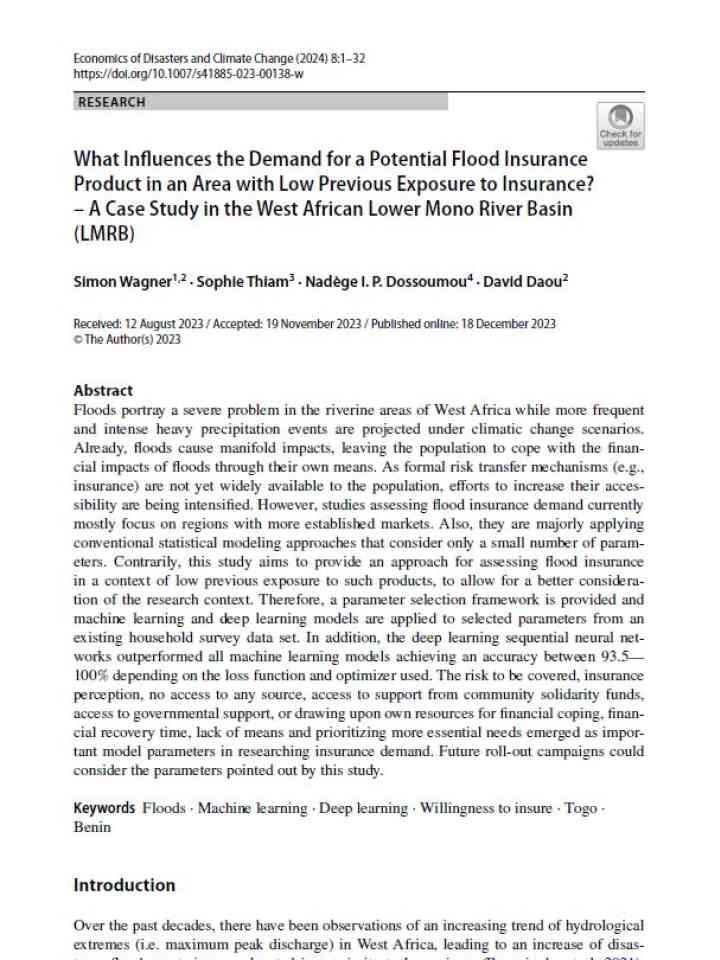What influences the demand for a potential flood insurance product in an area with low previous exposure to insurance? – a case study in the West African Lower Mono River Basin (lmrb)
This study aims to provide an approach for assessing flood insurance in a context of low previous exposure to such products, to allow for a better consideration of the research context. Therefore, a parameter selection framework is provided and machine learning and deep learning models are applied to selected parameters from an existing household survey data set. In addition, the deep learning sequential neural networks outperformed all machine learning models achieving an accuracy between 93.5—100% depending on the loss function and optimizer used.
The risk to be covered, insurance perception, no access to any source, access to support from community solidarity funds, access to governmental support, or drawing upon own resources for financial coping, financial recovery time, lack of means and prioritizing more essential needs emerged as important model parameters in researching insurance demand. Future roll-out campaigns could consider the parameters pointed out by this study.
Explore further

